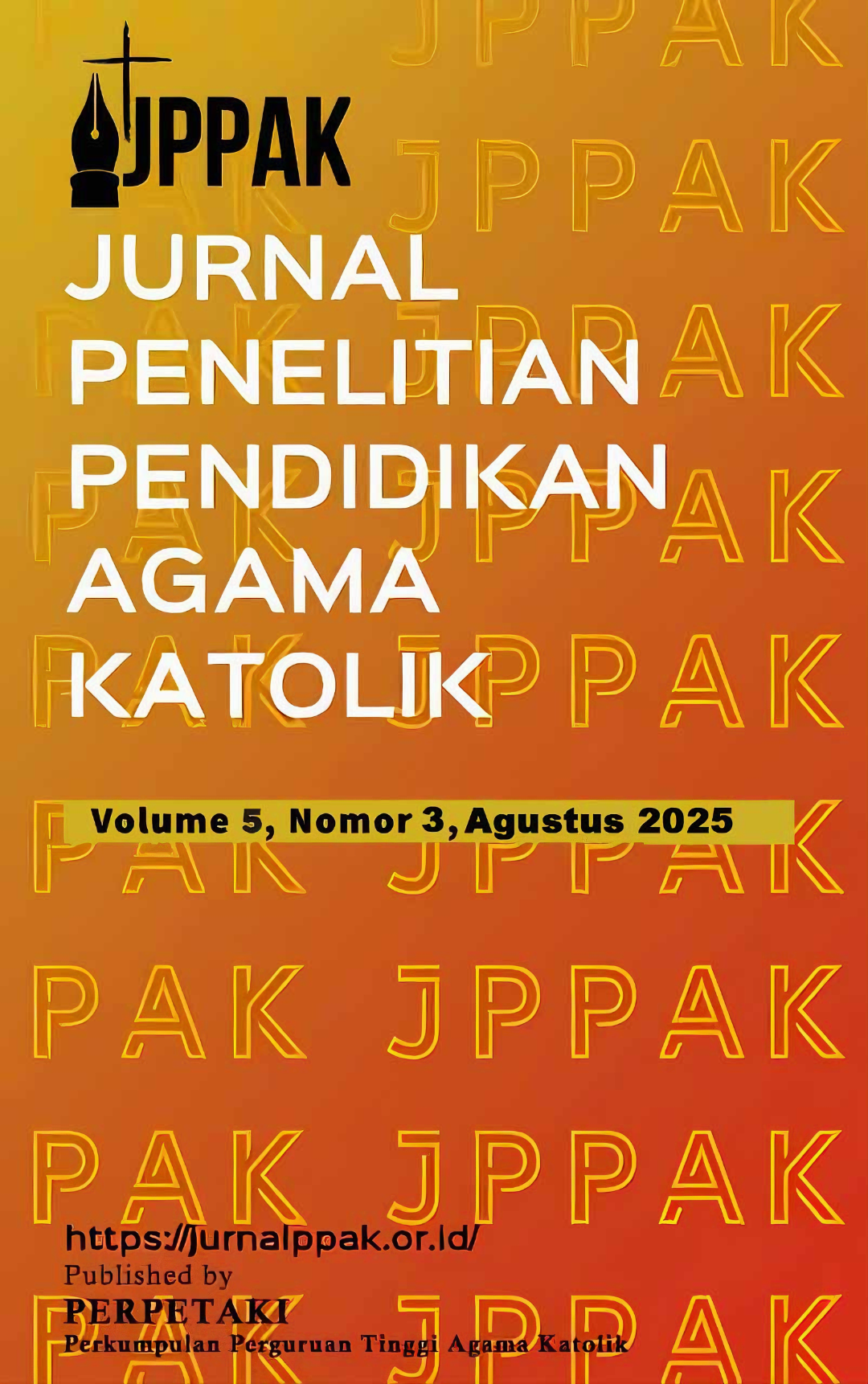Analysis of Content Effectiveness for Church Proclamation in the Digital Age
DOI:
https://doi.org/10.52110/jppak.v5i3.249Keywords:
Church, Digital, Evangelization, Cretive, TikTokAbstract
Development of digital technology has greatly influenced our lives, including the Church. In facing it, the Church keeps trying to listen to the echo of her mission in the world. Whatever dan whenever, The Curch has always been an ‘agent of salvation’ for the nations. Her presence must always be interpreted in the light of that mission.Thus, the Church couldn’t stand idly by, especially by consciously closing her eyes when hoax, flexing, FoMO, Doomscrolling, and Brain rot were happenned dan spread in the media. The Church needs to involved and actively fight for the values of truth and salvation. The digital era should be a new meeting ground in which the Church can grow and spread the news of salvation for more and more people. This study aims to find the new ways that Church can do in its preaching efforts, especially in this new era. By analyzing the effectiveness of content specifically on the TikTok account @mainmain_official, the presence of the Church is still very relevant to this era. The Church even has great opportunities in its missionary efforts by utilizing technology. This study uses two methods, namely the library method and content analysis. With this method, it was found that the Church can be present in this digital era to proclaim the Gospel and its righteousness, namely by utilizing digital platforms, especially TikTok. The efforts that can be made to increase the success of preaching are by creating creative, interesting, and inspiring content. One form is by displaying daily life testimonies that are relevant to the lives of many people.
Downloads
##submission.downloads##
Submitted
Accepted
Published
How to Cite
Issue
Section
License
Copyright (c) 2025 Yohanes Yudit

This work is licensed under a Creative Commons Attribution-ShareAlike 4.0 International License.
Copyright Notice and Permissions
Jurnal Penelitian Pendidikan Agama Katolik offers immediate open access to all its content on the principle to make researches freely available to the public, especially to the scholars, to support greater global exchanges of knowledge. This journal encourages all scholarly authors to allow their research openly available, free access and without time restrictions.
All articles published Open Access will be immediately and permanently free for everyone to read and download. Under the CC BY-SA 4.0 license, authors retain ownership of the copyright for their article, however authors grant others permission to use the content of publications in Jurnal Penelitian Pendidikan Agama Katolik (JPPAK) in whole or in part provided that the original work is properly cited. Users (redistributors) of Jurnal Penelitian Pendidikan Agama Katolik (JPPAK) are required to cite the original source by including at least: the full title of the article, the author's or authors' full name(s), JPPAK as the initial source of publication, year of publication and volume number using a propriate citing method.
Copyright encompasses exclusive rights to reproduce and deliver the article in all form and media, including reprints, photographs, microfilms and any other similar reproductions, as well as translations. The reproduction of any part of this journal, its storage in databases and its transmission by any form or media, such as electronic, electrostatic and mechanical copies, photocopies, recordings, magnetic media is prohibited without consent of Jurnal Penelitian Pendidikan Agama Katolik (JPPAK).
Jurnal Penelitian Pendidikan Agama Katolik (JPPAK) is licensed under a Creative Commons Attribution Share-Alike 4.0 International. (CC BY-SA 4.0)
Authors who publish with Jurnal Penelitian Pendidikan Agama Katolik (JPPAK) agree to the following terms:
- Authors retain copyright and grant the journal right of first publication with the work simultaneously licensed under a Creative Commons Attribution Share-Alike 4.0 International (CC BY-SA 4.0) license that allows others to share the work with an acknowledgement of the work's authorship and initial publication in this journal.
- Authors are able to enter into separate, additional contractual arrangements for the non-exclusive distribution of the journal's published version of the work (e.g., post it to an institutional repository or publish it in a book), with an acknowledgement of its initial publication in this journal.
- Authors are permitted and encouraged to post their work online (e.g., in institutional repositories or on their website) after the publication on JPPAK, as long as it not published on other OJS for it will be treated as plagiarism by plagiarism checker apps. It can lead to productive exchanges, as well as earlier and greater citation of published work (See The Effect of Open Access).












